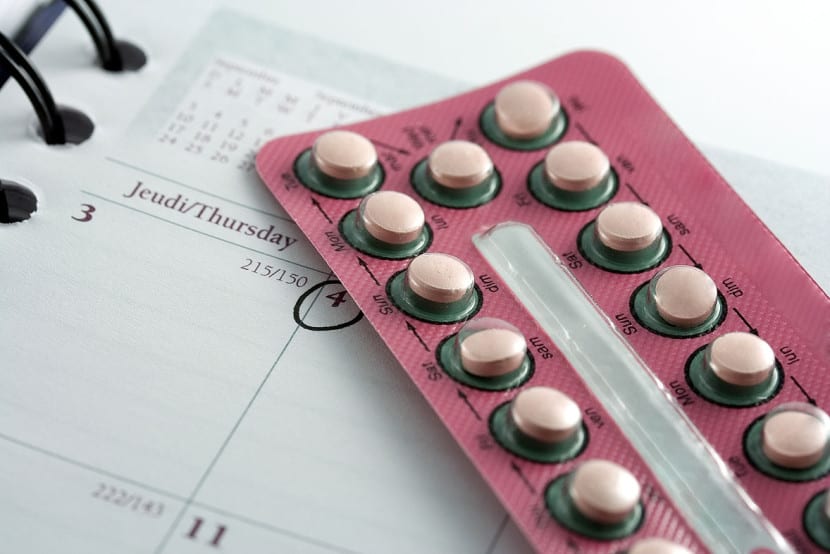
There are some lies or myths about ovulation that you should know. Only in this way will you know how to recognize what is true and what is not, thus being able to have better control over your ovulation and when are your fertile days. Hereinafter, Every time you hear these lies about ovulation, you will know that whoever is telling them is not right.
The signs of ovulation are always obvious
Although there are many ways that ovulation can be detected (basal temperature, cervical mucus, ovulation predictor tests, etc.), in reality, for some women these methods are not perfect and they are not that simple.
In fact, for some women basal body temperature detection won't work, either because their sleep schedule is too complicated or because they don't remember to constantly take and record their temperature every morning. For other women, tracking cervical mucus is easy, and for others, they question whether they even have "fertile quality" cervical mucus. Even the ovulation test kits that you buy at the pharmacy, You may think that they are absolutely infallible, but in reality it is not so easy to understand how they work.

If you are not able to detect when you are ovulating, you will have to boar with your doctor because maybe you are having a hard time detecting it… because you are not ovulating. Ovulation or anovulation problems can be a possible cause and occurs when a woman has female infertility.
If you ovulate, you get pregnant
Ovulation is essential for pregnancy to occur, but it takes more than this to conceive. For example, the path to the egg must be clear, if the fallopian tubes are blocked, pregnancy will not occur. Quality sperm are also needed ... Because getting pregnant does not only depend on the fertility of the woman.
It is also important to know that infertility does not always have noticeable symptoms. Some infertility problems (in both men and women) are not detestable without fertility testing.
40 is the new 30, also to get pregnant
Undeniably, fertility decreases with age. Your chances of getting pregnant at age 40 are not as good as at 30. Female fertility begins to decline after age 35.

This is why many women over the age of 35 will need help getting pregnant earlier than younger women. If you are under 35 you will need to be searching for a year before talking to your doctor. If you are over 35, then you should seek help after six months.
After 40 years a pregnancy is unviable
Getting pregnant after age 40 is entirely possible and feasible. Although the risk of infertility increases in your 40s (as does the risk of miscarriage), it is possible to have a healthy pregnancy.
It is also possible that after 40 a woman takes longer to get pregnant but this does not mean that she is sterile. You just have to keep in mind that if you have started perimenopause or menopause you must still use contraceptives if you do not want to have children because ovulation is possible and there is a risk of pregnancy.
Age does not matter for men
You may know stories of men who have had children in their 60s and 70s. This suggests that male fertility has no age limit, but this is not entirely true. Although men do not go through menopause to end their childbearing years, they also have a decline in fertility as they age.
In addition to an increased risk of infertility, pregnancies conceived with men over 40 are more likely to end in miscarriage or stillbirth. There is also an increased risk of certain diseases and conditions, including autism, bipolar disorder, schizophrenia, and childhood leukemia.
One study found that combining a woman's age with a man's can create fertility problems. They found that when a woman was between 35 and 39 years old, if her partner was five or more years older than her, her chances of conception dropped from 29% (on her most fertile day) to just 15%.
Birth control pills cause infertility
Birth control pills prevent pregnancy when they are being used, but once they are stopped, fertility returns. These do not increase the risk of infertility in any case.

There are women who when they take the contraceptive pills their periods become regular and when they stop taking them, they are irregular. This may make them think that it is the birth control pills that have proven the misfit in their rules by stopping taking them, but this is not exactly the case. Most hormonal birth control drugs cause an artificial regular cycle. Once they are stopped, the body takes over. It's not that the birth control pills made cycles irregular, it's that the birth control pills were creating an artificial regular menstruation.
It can also happen that a woman easily conceives her first or second child easily and that after taking the contraceptive pills for a while, it costs her. It's easy to blame birth control pills for this, but secondary infertility is not caused by the use of hormonal birth control. There are some hormonal contraceptives such as contraceptive injections that do not cause infertility but that can last longer than desired once it is stopped. If you think it is affecting you negatively, you should call your doctor.
Once you stop believing in these six ovulation and pregnancy myths or lies, you will begin to understand your body and the process of getting pregnant a little better. Remember also that any unprotected vaginal penetration can cause pregnancy, although ejaculation is made out with the reverse gear, pre-cum can cause pregnancy to occur. If you have any doubts about this, go to your doctor and ask him what you need. He will guide you on your ovulation without problems.